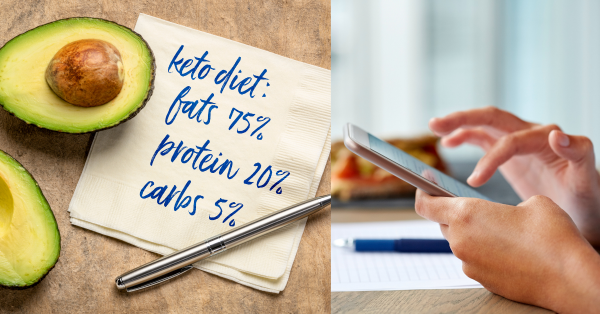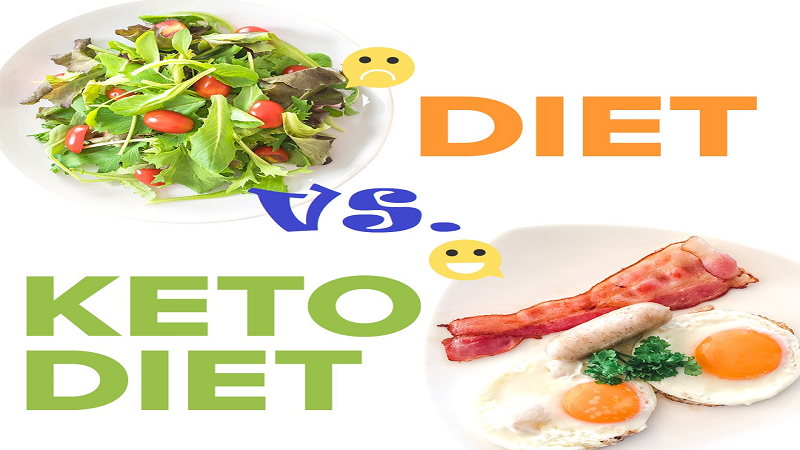
What Is Keto Diet? Benefits Of Ketogenic Diet.
What Is Keto Diet? Benefits Of Ketogenic Diet.
Recently, the keto diet has become most popular for its health benefits such as weight loss and prevention of disease. The keto diet can be hugely beneficial, but how does it work to provide these benefits?
Over 20 pieces of research have found that the ketogenic diet facilitates weight loss and also improves a person’s health ( 1).
The health benefits of the ketogenic diet extend to chronic health conditions such as cancer, diabetes, Alzheimer’s disease, and epilepsy ( 3).
This article serves as a comprehensive guide to the keto diet for What Should You Avoid On A Keto Diet?.
What is the Keto Diet?
You may have heard of the high-protein, low-carbohydrate Atkins diet. The keto diet keeps carbohydrate levels low, but instead of ramping up the amount of protein in your diet, the keto diet increases the amount of fat. A typical keto diet aims for meals with 75% fat, 20% protein, and 5% carbohydrate. Eating a high-fat diet can still mean eating healthy. Keto diet menu items often include seafood, meat, dairy products, eggs, vegetables, and nuts. With the increased popularity of the keto diet, keto recipes are widely available.
Types of the ketogenic diet

There are different types of ketogenic diets. They include:
• Standard ketogenic diet:
The standard ketogenic diet has low-carb content. The amount of protein is moderate, while the fat content is on the high side. Typically, the standard ketogenic diet contains 5 percent carbs and 20 percent protein, and a whopping 75 percent fat ( 1).
• Cyclical ketogenic diet:
The cyclical ketogenic diet is characterized by periods of high carb intake, So let’s say five days of a ketogenic diet, followed by 2 days of carb loading.
• Targeted ketogenic diet:
In the targeted ketogenic diet, you will be able to fuel with carbs during workouts.
• High-protein ketogenic diet:
Just as the name implies, this is a version of the ketogenic diet with very high protein content. So there is about 60 percent fat and only 5 percent carbohydrates, and 35 percent protein.
So It is important to note that extensive research has been done on the standard ketogenic diet and the high-protein ketogenic diet. The targeted and cyclical ketogenic diet is a bit advanced and used mainly by athletes or bodybuilders.
All that is discussed in this article is applicable to the standard ketogenic diet.
How Does the Keto Diet Work?

It might seem counterintuitive that adding more fat to your diet can lead to weight loss. Normally, your diet is high in carbohydrates, which are broken down into glucose, or blood sugar, for use as energy. As glucose enters your bloodstream, your body releases insulin to store excess glucose as fat. The more carbohydrates, the more glucose. The more glucose, the more insulin, and the more insulin, the more fat.
The keto diet takes advantage of the fact that when your meals are high-fat and low-carbohydrate, there is no insulin spike, and you don't add to your fat reserves. Instead, fat from the diet and stored fat are broken down into ketones ("keto" is short for "ketogenic" producing ketones). Like glucose, ketones can be used for energy, keeping your body running without increasing blood sugar or putting on excess fat. The benefits of the keto diet can be huge.
When the body switches into a ketotic state, it becomes very efficient in burning fat for energy. It also converts fat into ketones. The conversion takes place in the liver, and these ketones can supply fuel to the brain such as the supplier ( 6, 7).
The ketogenic diet has the potential to drastically and such as reduce insulin and sugar levels in the blood. This, together with the high concentration of ketones, has many health benefits ( 6, 8, 9, 10, 11).
Weight Loss

Overall, the keto diet is an excellent way to burn fat and lose weight. Eating fewer carbohydrates suppresses appetite, and studies have shown that keto diet participants eat fewer calories overall because of this. Burning fat for energy can lead to rapid weight loss.
The keto diet is vital for weight loss. It also reduces many disease risk factors ( 8, 9, 10, 11).
A number of studies have shown that the ketogenic diet is more efficient at weight loss therapy compared to the low-fat diet ( 14, 15, 16).
Also, the ketogenic diet is filling, so it is possible to lose weight without tracking every single meal you take or without counting calories ( 16).
Particular research found that ketogenic dieters lost more weight compared to those who adopted a low-fat diet. They also witnessed improved levels of HDL cholesterol and triglyceride levels( 17).
The second research found that ketogenic dieters lost three times more weight compared to those who took the Diabetes UK diet ( 18).
There are many reasons why the ketogenic diet seems better off than the low-fat diet ( 14, 19, 20).
The high ketone level, low level of blood sugar, and increased sensitivity to insulin might as well play a role ( 21, 22, 23, 24, 26).

Reduced Blood Sugar and Insulin
Diabetes is a metabolic disorder defined as high blood sugar and poor insulin function(27).
Since carbohydrate intake is limited, blood sugar and insulin levels are lowered. This is particularly important for people with type 2 diabetes, which causes a buildup of glucose in the bloodstream. The keto diet can be used to reduce or eliminate the need for diabetic insulin injections.
What role does the keto diet play in diabetes and prediabetes?
The ketogenic diet enhances fat loss, which has a close association with type 2 diabetes, metabolic syndrome, and prediabetes ( 28, 29, 30).
Particular research found that the keto diet caused a 75 percent improvement in insulin sensitivity ( 29).
Another study involving type 2 diabetes patients found that 7 participants of the 21 that took part in the study were able to do without the diabetes medications ( 28).
In a third study, the group that adopted the keto diet lost 11kg (24.4 pounds)So the whole group that fed on high carbs lost 15.2 pounds. So this is a very major benefit considering the association between type 2 diabetes and weight ( 31).
Also, the majority of the subjects (95.2%) in the keto group were able to reduce or completely stop diabetes medication, as opposed to just 62 percent in the group that fed on high carbs.
Reduced Triglycerides
Fat subunit molecules called triglycerides normally circulate in your bloodstream. High levels of triglycerides are a significant risk factor in the development of heart disease. In the keto diet, because fat is being burned for energy, the number of triglyceride molecules in the bloodstream decreases, reducing the risk of heart disease.
Improved Cholesterol
"Bad" (LDL) cholesterol is another risk factor for heart disease. Too much bad cholesterol in your bloodstream builds up in your arteries, narrowing them and causing atherosclerosis, a type of heart disease. The keto diet reduces bad cholesterol levels while increasing the level of "good" (HDL) cholesterol in your body.
Secondary health benefits of the keto diet
Although the ketogenic diet was initially meant for the treatment of neurological disorders like epilepsy.
However, research has shown that the health benefit of the ketogenic diet covers many health conditions:
• Cardiovascular disease: Clinical research has shown that the keto diet improves risk factors for heart diseases. Such as the level of HDL cholesterol, blood pressure, blood sugar, and body fat ( 32, 33).
• Cancer: The ketogenic diet has been tested on several types of cancer and has proven effective in slowing down the growth of tumors ( 34, 35, 36).
• Alzheimer’s disease: The keto diet has been proven to reduce the rate of progression of Alzheimer’s as well as reduce its symptoms ( 37, 38).
• Epilepsy: Treatment of epilepsy is another strong point of the ketogenic diet. In fact, the ketogenic diet was originally designed to treat epileptic seizures. Research has shown that it is very helpful with this ( 3).
• Parkinson’s disease: A particular research found that the symptoms of Parkinson’s disease could be improved with the ketogenic diet ( 39).
• Polycystic ovary syndrome: Ketogenic diet has a downward effect on insulin levels. This means that it reduces insulin levels, which may play a very vital role in polycystic ovary syndrome.
• Injuries to the brain: A study found that the ketogenic diet can minimize concussions and facilitate recovery after injury to the brain ( 41).
• Acne: Acne can be improved by eating sugar-free foods, reducing your intake of processed foods, or lowering insulin levels (because this is the ideology of the ketogenic diet) ( 42).
However, it is worthy of note that most of these researches are inconclusive. Work is still ongoing to determine how exactly the ketogenic diet contributes to these health benefits.
What should you avoid on a keto diet?
You should limit your intake of foods with high-carb content.
The following foods should be eliminated or reduced on a keto diet:
• Foods with high sugar content: Fruit juice, soda, cake, smoothies, candy, ice cream, etc.
• Starches or grains: Rice, wheat products, cereal, pasta, etc.
• Fruit: Eliminate all fruits with the exception of berries (and these berries must be consumed in small amounts).
• Legumes or beans: Kidney beans, peas, chickpeas, and lentils should be reduced.
• Tubers and root vegetables: Sweet potatoes, parsnips, and carrots.
• Diet products or low-fat products: They are often heavily processed with very high carb contents.
• Certain sauces or condiments: These foods are high in sugar & unhealthy fats.
• Unhealthy fats: Reduce the amount of mayonnaise, processed vegetable oils, etc. that you consume.
• Alcohol: It has a high carb content, and may cause the body to switch out of ketosis.
Foods that you can eat as part of your keto diet

Most of your meals may be based around the under listed foods:
• Meat: Steak, sausage, red meat, bacon, ham, turkey, and chicken.
• Eggs: pastured eggs or omega-3 whole eggs
• Fatty fish: Good examples include mackerel, trout, salmon, and tuna.
• Butter/cream: always opt for the grass-fed variety.
• Cheese: the best cheese is the unprocessed form (cream, goat, cheddar, mozzarella, or blue).
• Seeds & nuts: walnuts, almonds, pumpkin seeds, flax seeds, and chia seeds, among others.
• Healthy oils: Avocado oil, coconut oil, & extra virgin olive oil.
• Veggies with low-carb content: tomatoes, green veggies, peppers, onions, etc.
• Condiments: Salt, pepper, & other healthy herbs & spices.
Your diet should be based on whole, and single-ingredient foods.
A one-week keto meal plan
| Days | Breakfast | Lunch | Dinner |
| Monday | Tomatoes & eggs with bacon | Chicken salad, feta cheese, with olive oil | Butter-cooked salmon with asparagus |
| Tuesday | Goat cheese omelet, basil, tomato, and eggs | Peanut butter, almond milk, stevia milkshake, and cocoa powder | Cheddar cheese, vegetables, and meatballs. |
| Wednesday | Ketogenic milkshake | Avocado and olive oil with shrimp salad | Pork chops and parmesan cheese, with salad and broccoli |
| Thursday | Omelet garnished with avocado, peppers, salsa, spices & onions | Celery sticks and nuts with salsa and guacamole | Chicken filled with cream cheese and pesto, together with some veggies |
| Friday | Yogurt (sugar-free) with stevia, cocoa powder, and peanut butter | Stir-fried beef and vegetables cooked in coconut oil | Burger (without bun), cheese, and egg |
| Saturday | Cheese omelet and ham with vegetables | Cheese slices and ham with nuts | Egg, spinach, and white fish cooked in vegetable oil |
| Sunday | Fried eggs with mushroom and bacon | Burger with cheese, guacamole, and salsa | Eggs and steak with salad |
Healthy keto snacks
Just in case you feel hungry between meals – as you can nibble on these snacks. Although they are healthy and keto-approved.
• Fish or meat with lots of fat
• Cheese (with olives)
• Seeds or nuts (a handful will do)
• 2 hard-boiled eggs
• Celery, guacamole & salsa
• Strawberries with cream
• Yogurt (full fat) with cocoa powder and nut butter mixed together.
Here are some tips to help you when eating a keto meal at a restaurant
There’s nothing difficult about making your meals at a restaurant keto-friendly.
So many restaurants do offer fish-based or meat-based diets. Simply place an order, and then they have the high-carb food replaced with some more vegetables.
Another fine option would be egg-based delicacies, like eggs, bacon, and omelet.
Bun-less burgers are also a favorite. You could replace the fries with vegetables. Top with eggs, cheese, avocado, or bacon.
If you want to have desserts, then you can get berries or a mixed-cream board with cheese.

What are the side effects of a keto diet and how can you deal with them?
The keto diet is healthy & safe, especially for people who are already healthy and nutritionally balanced. But some people may experience a few side effects in the course of the body adapting to the keto diet.
The side effects due to a keto diet are known as the keto flu and they often resolve in a few days.
Symptoms of the keto flu include sleep issues, poor mental and physical function, hunger, nausea and decreased performance during physical exercises, and a feeling of discomfort in your digestive system.
You can minimize these effects by getting on a regular low-carb diet for a few weeks. With this, your body will learn how to burn a lot of fat before the fat is completely eliminated.
A ketogenic diet can also alter your body’s mineral and water balance. Although you can deal with this by having mineral supplements or adding some more salt to your meals.
For minerals, you can start with 3000 – 4000mg of Na (sodium), 300mg of magnesium, and 1000mg of potassium daily to reduce the side effects.
In the beginning, eat to your satisfaction and avoid excessive calorie restriction. For the most part of it, a ketogenic diet will facilitate weight loss without your consciously restricting calories.
Finally, it is worth noting that as wonderful as the keto diet may be, it isn’t for everyone
A keto diet is good for people who want to up their metabolic health, or for those who are diabetic, or overweight.
It is not suitable for professional athletes or those who want to gain weight or muscle.
Like any other diet, you will only benefit from it if you stick to it.
The keto diet provides many health benefits. This diet can not only help you quickly lose weight but can also improve your overall health and help prevent disease.
Also, Check This Articles
7 Benefits of the Keto Diet Plan
If you want to cut out something completely, cut out the refined sugar! Read more...






00 Comments